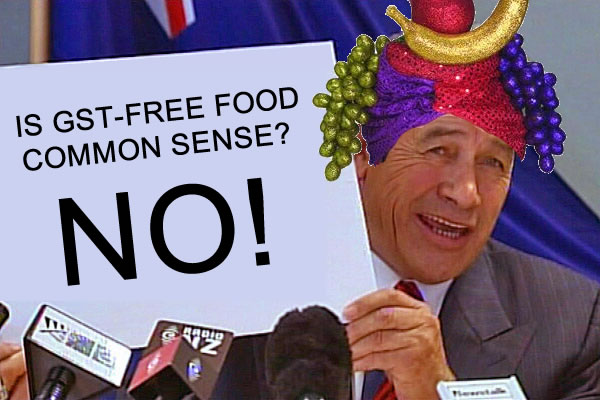Over the weekend income politicians were falling over themselves to agree that poor people in this country have it tough and that their policies are the answer. Winston Peters ‘common sense’ response is to take GST off food and rates. But this is a grossly expensive and ineffective way of dealing with poverty. As a potential ‘kingmaker’, this flagship New Zealand First policy deserves a long hard look.
The good news in the Statistics NZ figures is that the median income (the income of the middle Kiwi) has risen faster than inflation over the past six years. The bad news is that the poorest 10% of households still live on disposable incomes of less than $21,000 per year. All party leaders agreed they need to earn more, but the predictably disagree over how to achieve that.
Winston Peters and his party New Zealand First are riding high in the polls, and could potentially fulfill the role of kingmaker post election. It is hard to know how much of this if anything is due to his policies, but a core part of his ‘common sense’ platform is to take the GST off food and rates. There are a number of reasons why this is a bad idea.
First up is the huge cost. Kiwis spend nigh on $19 billion on food and rates each year alone. Removing the GST off that figure means we are looking at a cost of $2.4b every year. This one policy dwarfs the tax and spending packages put forward by the major parties. It isn’t clear how Winston plans to pay for it. As John Key would say, “show me the money!”.
The second problem is that these exemptions would destroy the simplicity of our current GST system. New Zealand’s GST is delightfully simple (which can’t often be said for tax), and so it is simple for businesses to use. In fact if anything, our simple GST system has probably improved accounting processes in small New Zealand businesses. Creating exemptions to GST would mean massive administrative headaches for dairy owners for example, who sell food (if you can call it that) amongst other stuff too. Processes would need to change, which would hit small businesses in particular. Sure, these problems are surmountable, as Australia has shown. But they don’t help.
Finally, and most importantly, this is not an effective way to reduce poverty. As we discussed when Labour mooted the idea of removing GST off fruit and veges, the poor don’t spend the most on food. Using 2010 figures, the poorest 10% of households spend roughly $90 per week on food. Winston’s policy would give them a spare $11 per week. The top 10% of households spend almost $300 on food every week, so would gain $38. Reducing GST on food ends up helping the rich more in absolute terms than it helps the poor. This would be even more the case with rates payments, which are paid by property owners – the asset rich.
If you are going to spend $2.4b reducing poverty, there are better ways of doing it than reducing GST. While GST may be a regressive tax (in that the poor pay a bigger percentage of their income than the rich), as we have seen reducing GST doesn’t help the poor as much as the rich in absolute terms. That is because the rich tend to spend more. A far more progressive approach to poverty is creating an unconditional basic income, which would everyone the same income every week regardless of their circumstances. Even a small unconditional basic income would be a better way to spend the $2.4b that Winston is preparing to splurge.

